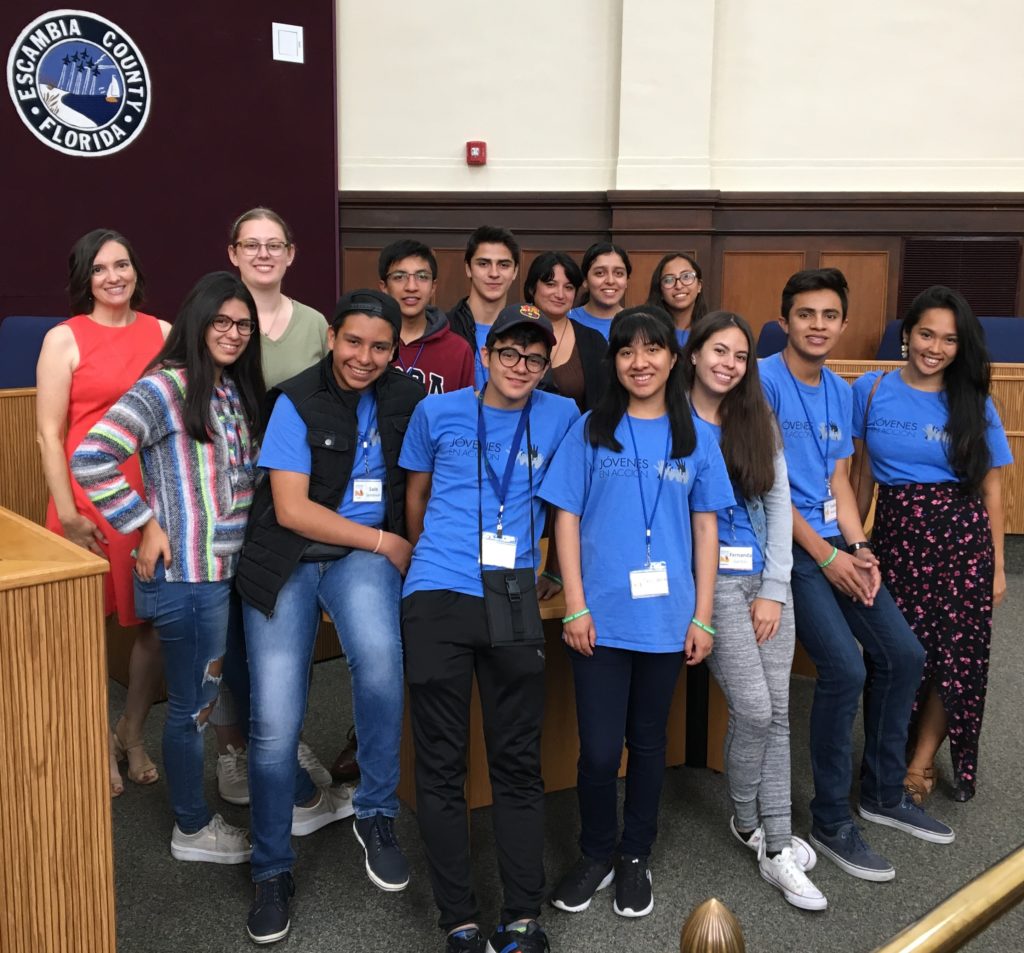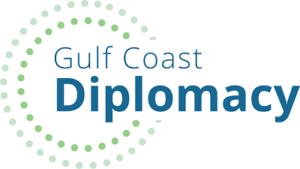An internship with the Gulf Coast Citizen Diplomacy Council allowed me to participate in the building of a cultural bridge between the United States and Mexico through hands-on, active, and stimulating work. During my time with the Jóvenes en Acción program, I established life-long bonds with foreign visitors and met the leaders and entrepreneurs of Pensacola. Yet, perhaps most importantly, I encountered different perspectives and formed new ones myself, all without leaving the boundaries of my hometown. I had the privilege of participating in meaningful cultural exchange and the humanization of people of different cultures through the combating of damaging stereotypes—both of our foreign visitors and Americans ourselves.
On the penultimate day of the program, I watched as a sixteen-year old Mexican student spoke to the Escambia Boys’ Base, detailing the ways in which Mexican stereotypes perpetuated by American media are untrue. Patiently, she stated that Mexicans do not really celebrate Cinco de Mayo and that, no, the vast majority of Mexican immigrants are not criminals. As she spoke, I looked around the room and realized the majority of these young men, who had been watching the Jóvenes en Acción presentations with such rapt fascination, had never left the United States, Florida, or maybe even Escambia County. These boys, who the Jóvenes had initially been so wary of, were instead respectful, inquisitive, and attentive. As the stereotypes evaporated on both sides and a new wave of mutual understanding settled over the crowd, I became a first-hand witness to the power and importance of citizen diplomacy.
What had at the beginning of the day been their most dreaded appointment transformed into a celebratory atmosphere as we walked together back to the bus. “I think you guys broke stereotypes on both sides today,” announced Courtney Boren, our program coordinator, once the students were seated. Everyone agreed, answering Courtney with smiles and whoops of affirmation. As the bus began to move, the students rallied together to practice a song that they were going to sing to thank their host families at dinner that evening. I sat there, listening, completely bowled over by the effects of these new relationships. I was amazed to recognize changes, not only in the Jóvenes and the people they had met, but in myself.
It became a running joke during the program that, at meetings, one student would introduce himself as “the future President of Mexico.” But as I saw how talented, intelligent, and enthusiastic these ten teenagers were, I realized that I was participating in the journey of future Mexican leaders and entrepreneurs. Now, I’ve friended them on Facebook and follow them on Instagram. I watch as they move on to Washington, D.C., posing in front of the White House in their sharp professional clothes. I feel privileged to have had a hand in their journey, and honored to be able to watch their next steps.
Indica Mattson, Gulf Coast Citizen Diplomacy Council Intern

